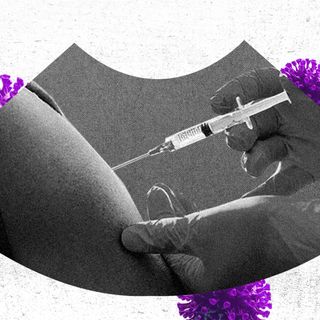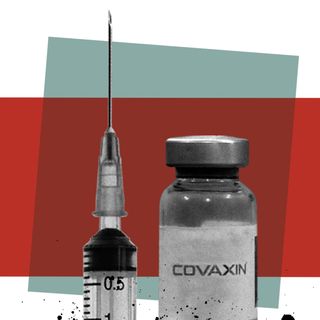A new study links people who experience bitter tastes more intensely with a higher immunity against Covid19 — because of a common gene.
The peer-reviewed study, published last month in JAMA, terms people with an overt sensitivity to bitterness as “supertasters” and notes these supertasters may carry genetic protection against severe Covid19 infection. While the study was carried out on a small sample size, researchers found the ability to taste bitterness offered an indication of who was more vulnerable to a Covid19 infection — a link that may help explain why some people are affected more severely by Covid19 than others.
The researchers examined 1,935 adults — classifying them as nontasters (those who could not taste bitterness), tasters (those who could), and supertasters (those who could taste bitterness most intensely). They administered flavored strip tests; of these, those who experienced low intensity or no bitter tastes (nontasters) were more likely to test positive for Covid19 and be symptomatic for a longer time, while those who experienced more intense bitterness represented a small number of positive patients. What was common among the “supertasters” was the taste receptor gene, the T2R38, which has been associated with higher immunity from bacterial upper respiratory infections in separate studies.
The T2R38 decides one’s ability to taste bitterness. A person must inherit the T2R38 gene from both parents to be a supertaster. In this study, people who inherited this gene from both their parents were more sensitive to bitter taste, and seemingly had a higher immunity against Covid19 when tested. This is because inheritors of the gene have more filaments in their upper respiratory tracts, which could help them fight pathogens.
“I think this [finding] is going to help unravel the mysteries of Covid19, and eventually have clinical use,” said Amesh Adalja from Johns Hopkins Center for Health and Security, who was not involved in the study.
Related on The Swaddle:
Having a Cold Can Temporarily Protect Against Covid19, New Study Finds
The implications of the findings could help manage the spread of the disease better by identifying those who are more vulnerable to the disease than others “We present our findings as an area that warrants further scientific study to potentially create a safe, cost-effective, accurate, and easily scalable screening tool that has the potential to stratify patients into groups and assess the risk of infection with SARS-CoV-2 and the expected clinical course of the disease,” the study notes.
Moreover, Adalja also suggests that profiling people based on their immunity could help hospitals come up with better scoring systems to decide the urgency of cases that come in.
Henry P. Barham, the lead author of the study, disclosed having a financial interest in the test kits used in the study. Despite this, the results of the study would need to be replicated independently in order to draw any conclusions about the link between taste buds, genetic predisposition, and Covid19 immunity.
However, Barham cautions that although the findings help predict the severity of the disease, they must not influence prevention efforts such as vaccines and social distancing. “Even supertasters, as they age, have the potential to get sick, especially if exposed to a high viral load,” he told the Post.
Although researchers are trying to understand the SARS-CoV-2 virus more, experts insist that findings regarding genetic immunity, in general, should not deter people from taking these preventive measures — since they may still be carriers of the virus. The authors also acknowledged that the lack of prior knowledge regarding patients’ symptoms, susceptibility to infection, and outcomes in different populationswill influence the findings.




